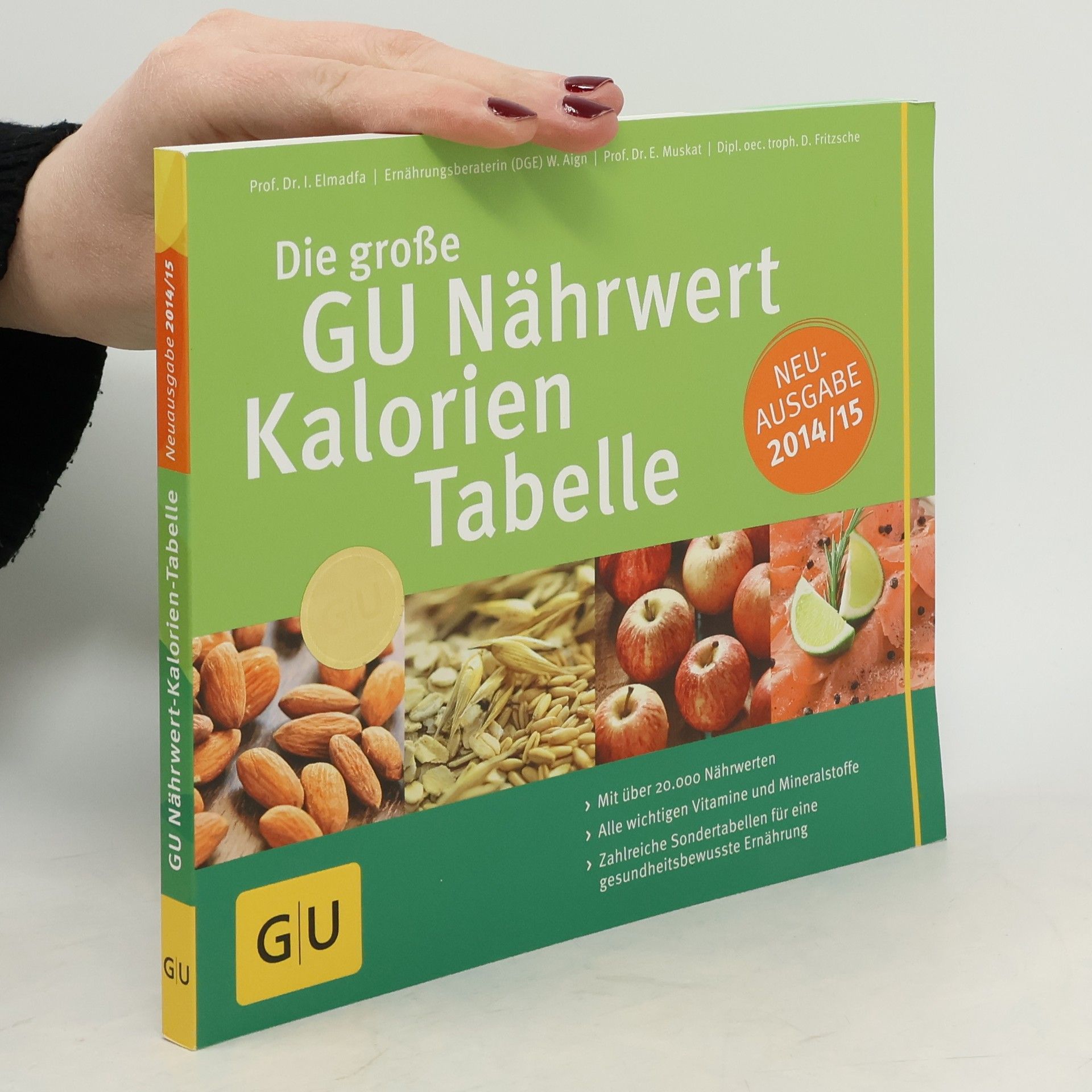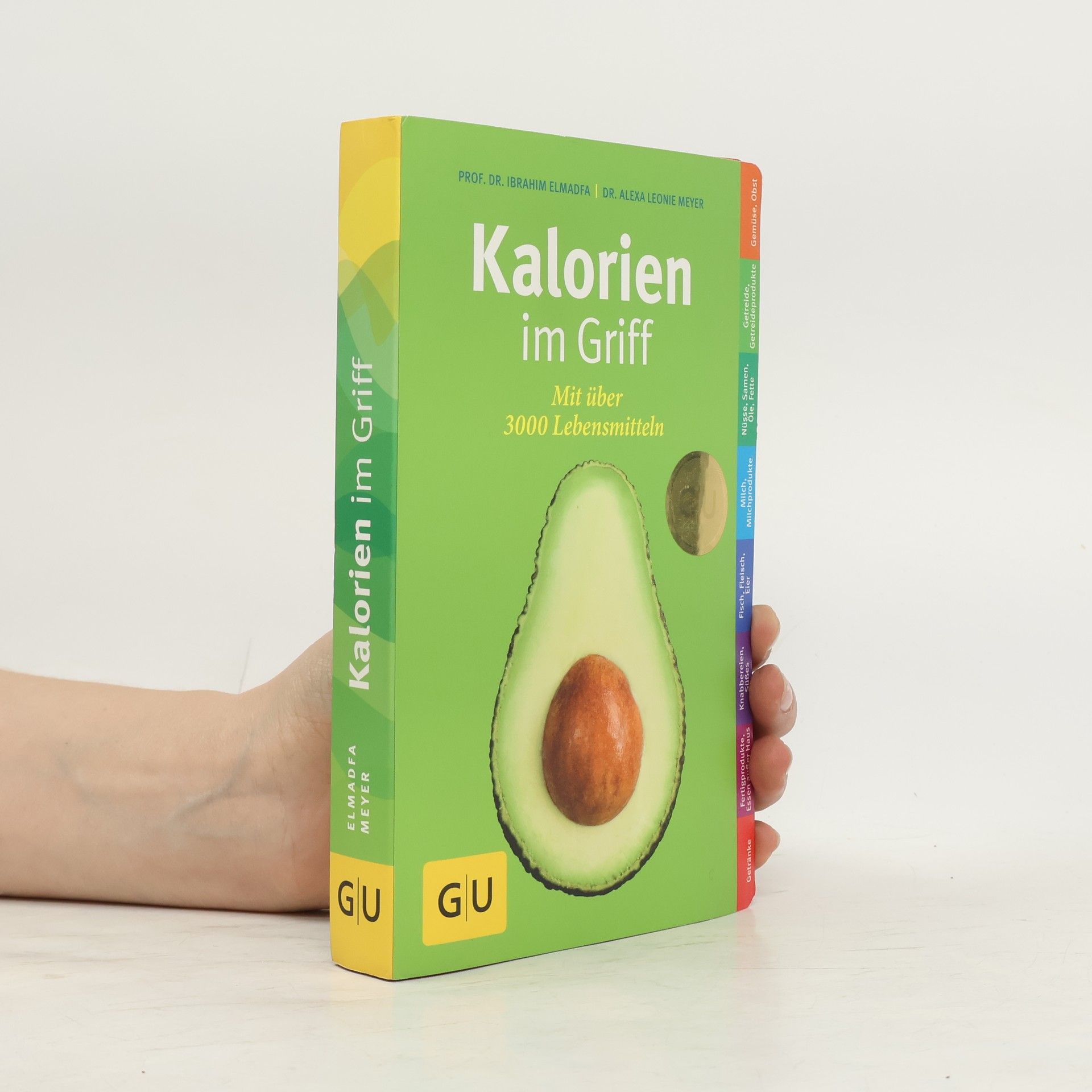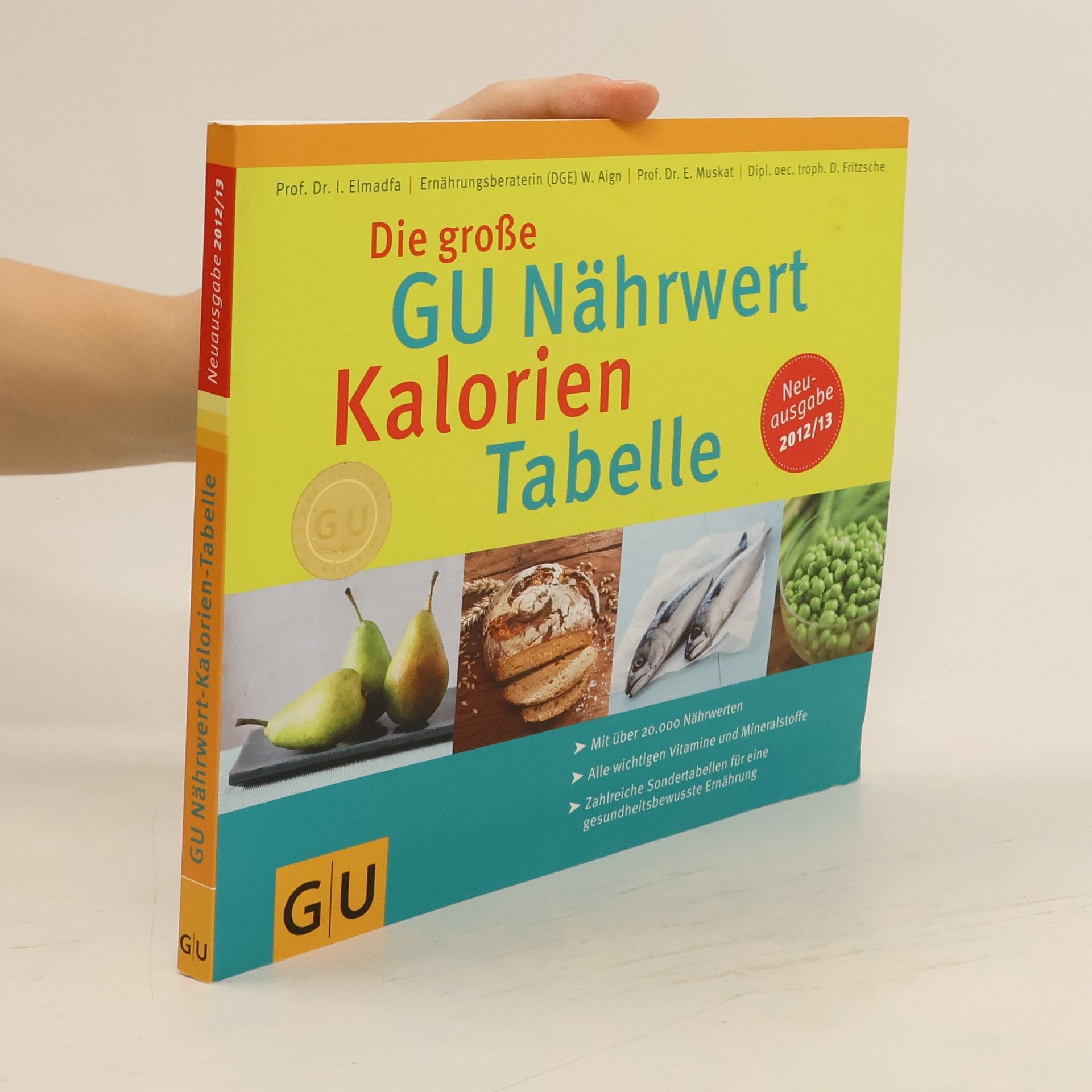Kalorien im Griff enthält über 3.000 Lebensmittel - von Obst und Gemüse, über Markenprodukte, bis hin zu Fertiggerichten wie Pizza und Co. oder den Klassikern im Restaurant. Neben den Angaben zu Eiweiß-, Fett- und Kohlenhydratgehalt pro üblicher Verzehrsmenge, finden sich auch die Kalorienangaben pro Portion UND 100 Gramm eines Lebensmittels. So erspart man sich lästiges Umrechen und kann den Kaloriengehalt dennoch unverfälscht vergleichen. Das Griffregister erleichtert das Nachschlagen und führt schnell zur gesuchten Lebensmittelgruppe - so hat man unter den verschiedenen Käsesorten auch schnell die kalorienarme ausgemacht. Das perfekte Nachschlagewerk für alle, die sich bewusst ernähren und ihre Kalorien im Griff haben möchten!
Ibrahim Elmadfa Books






Ernährung des Menschen
- 627 pages
- 22 hours of reading
Ein Standardwerk in neuem Gewand: Das gesamte Grundlagenwissen für Studierende der Ernährungswissenschaften und verwandter Disziplinen. Dieses eingeführte Standardwerk wurde in der 5. Auflage komplett überarbeitet und auf den aktuellen Stand der Wissenschaft gebracht. Viele neue Themen und aktuelle Studien wurden berücksichtigt und liefern Wissen auf dem aktuellen Forschungsstand. Der Klassiker präsentiert sich zudem in einem modernen und leserfreundlichem Layout. Zahlreiche, meist zweifarbige Abbildungen und Tabellen sowie Boxen mit den wichtigsten Lerninhalten und Zusammenfassungen erleichtern die Übersicht und das Lernen. Das bewährte und renommierte Autorenteam informiert aktuell, praxisnah und kompetent über das gesamte Grundlagenwissen rund um die Ernährung des Menschen. Ideal für das Studium, aber auch als Nachschlagewerk in der Berufspraxis.
Der erfolgreichste und bei Ernährungsexperten anerkannte Klassiker unter den Nährwerttabellen
Vielkönner Ballaststoffe
- 128 pages
- 5 hours of reading
Ballaststoffe: unterschätzter Wertstoff Wie gesund Ballaststoffe sind, wird immer mehr erkannt. Sie regulieren die Darmtätigkeit und beeinflussen den Stoffwechsel positiv. Durch ihre sättigende Wirkung und das Quellvermögen helfen sie erfolgreich gegen Übergewicht und einen trägen Darm. Ballaststoffe kommen auch vorbeugend gegen Bluthochdruck, Fettstoffwechselstörungen, Diabetes Typ 2 und Dickdarmkrebs zum Einsatz. Als Tagesbedarf werden mindestens 30 g empfohlen. Gute Quellen ausfindig zu machen, ist aber nicht so einfach. Der Ratgeber bietet dafür eine wertvolle Hilfe. Ein Test hilft zu erkennen, wie ballaststoffreich die momentane Ernährung ist. Wie es in drei Phasen gelingt, den Anteil zu erhöhen, zeigt der umfangreiche Praxisteil. Ausführliche Tabellen bieten einen optimalen Überblick zum Ballaststoffgehalt von unverarbeiteten Lebensmitteln, beliebten Fertigprodukten und zubereiteten Speisen. Rund 40 Satt- und Schlankrezepte sowie Tagespläne und Ideen fürs Tauschen von Zutaten machen die Umsetzung wirklich leicht.
Eine verständliche Einführung in die Ernährungslehre für Studierende der Ernährungswissenschaften. Das Buch behandelt physiologische Grundlagen, Nährstoffe, Vitamine, Mineralstoffe und Lebensmittelzusätze. Es analysiert die Ernährungssituation in Deutschland, Österreich und der Schweiz sowie weltweit und thematisiert Risiken und Prävention ernährungsabhängiger Krankheiten.
Additivi e conservanti
- 94 pages
- 4 hours of reading
Il volume offre una rassegna degli additivi e dei conservanti aggiunti agli alimenti di largo consumo. Con una spiegazione tecnica accessibile e un linguaggio semplice e immediato, vengono resi noti origine, caratteristiche, dosi massime giornaliere e possibili effetti collaterali di ogni singolo additivo (i famosi numeri "E" riportati sulle confezioni). Un aiuto per un'alimentazione più consapevole, utile per i tanti consumatori con problemi di intolleranze o allergie.
Oft werden zu hohe Harnsäurewerte erst ernst genommen, wenn sich der erste Gichtanfall ereignet hat. Ist der natürliche Abtransport der Harnsäure gestört, kann dies bis hin zu den äußerst schmerzhaften Anfällen führen, dauerhaft können sogar Schädigungen an Gelenken oder Nieren eintreten. Soweit muss es jedoch nicht kommen, wenn man bei der Lebensmittelauswahl ein paar Dinge beachtet, denn Harnsäure wird größtenteils durch Purine in der Nahrung aufgenommen. Dieser Kompass im Handtaschenformat gibt alle grundlegenden und hilfreichen Informationen zu den Themen Harnsäure und Gicht. Der Kern ist der Tabellenteil mit einer Auflistung von natürlichen Lebensmitteln, Fertiggerichten und typischen Fastfood-Gerichten. Hier wird neben konkreten Werten gezeigt, welche Lebensmittel bedenkenlos verzehrt werden können und bei welchen Vorsicht geboten ist. Besonders praktisch: Mit Hilfe des Ampelsystems wird auf einen Blick ersichtlich, wie ein Produkt hinsichtlich Purinen einzustufen ist.
Die GU Nährwert-Kalorien-Tabelle ist seit Jahren der erfolgreichste und bei Ernährungsexperten anerkannte Klassiker. Praktisch und benutzerfreundlich liefert die Tabelle wertvolle Informationen über alle wichtigen Inhaltsstoffe unserer Nahrung und berücksichtigt die aktuellen Referenzwerte der Deutschen Gesellschaft für Ernährung zur Nährstoffzufuhr. Das nach Lebensmittelgruppen sortierte Griff-Register und die vielen Sondertabellen, zum Beispiel für Diabetiker oder Allergiker, bieten eine sehr gute Übersicht über zahlreiche Produkte.
GU Kompaß Nährwerte
- 128 pages
- 5 hours of reading
Das Buch von Ibrahim Elmadfa, Waltraute Aign und Doris Fritzsche umfasst 112 Seiten und enthält zahlreiche Tabellen. Es ist in einer Klarsichthülle erhältlich.
Unsere Lebensmittel
Wissen, was drin steckt und gesund macht. Natürliche Quellen für Energie und alle Nährstoffe in über 150 Tabellen. Extra: Tabelle zu n-6 und n-3 mehrfach ungesättigten Fettsäuren. Inklusive den neuen DGE-Empfehlungen 2024
- 256 pages
- 9 hours of reading
Dieser Praxisratgeber bietet umfassende Informationen zu Nährstoffen in Lebensmitteln, einschließlich Vitaminen, Mineralstoffen und Fettsäuren. Mit übersichtlichen Tabellen können Leser schnell aktuelle Angaben finden und erhalten nützliche Beispiele für Tagesportionen sowie Empfehlungen von Ernährungswissenschaftlern.



